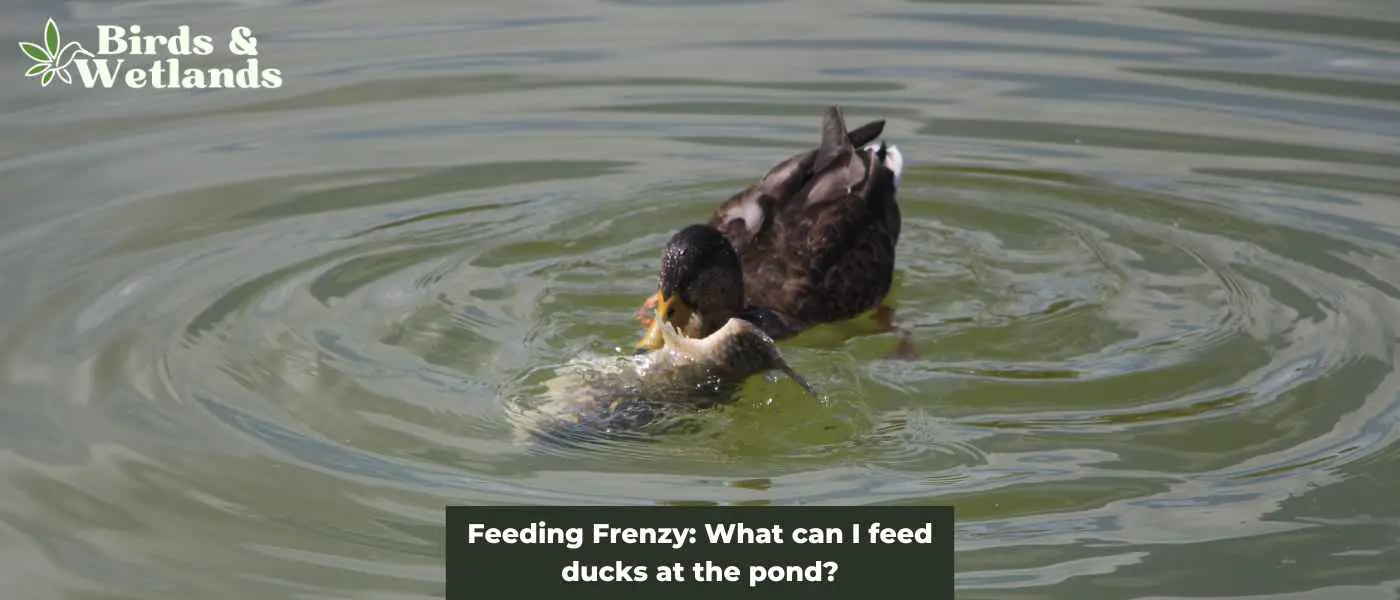Ducks are charming creatures that are a common sight at ponds, lakes, and parks. Feeding ducks can be a fun and relaxing activity, but it is essential to know what to feed them to ensure their health and well-being. While ducks are omnivores and can eat a variety of foods, not all foods are suitable for them.
When feeding ducks at the pond, avoid bread, as it can cause health issues and harm the environment. Instead, offer healthier options like halved seedless grapes, chopped lettuce, oats, birdseed, frozen peas, or corn. These alternatives provide better nutrition and support the well-being of ducks and their habitat.
Key takeaways
- Skip bread: it’s harmful to ducks’ health and the environment
- Opt for healthier alternatives like grapes, lettuce, oats, birdseed, peas, or corn
- Nutritious options support ducks’ well-being and protect their habitat
Why You Should Feed Ducks at the Pond
Feeding ducks at the pond can be a fun and rewarding experience for both humans and ducks. Here are a few reasons why you should consider feeding ducks at the pond:
It Helps Wild Ducks Thrive
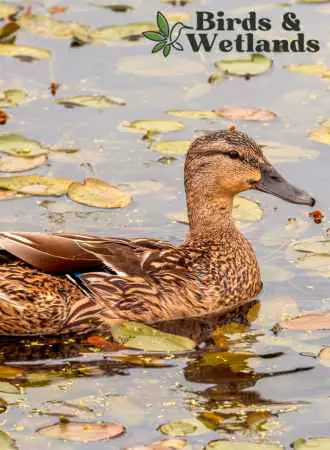
Feeding ducks at the pond can help wild ducks thrive. Ducks need a varied diet to stay healthy, and feeding them can supplement their natural diet. Providing food can also help ducks during times of scarcity, such as during the winter months when food is harder to find.
It Can Be Educational
Feeding ducks at the pond can be an educational experience for children and adults alike. Observing the ducks’ behavior and learning about their natural diet can be a fun and informative activity.
It Can Foster a Connection with Nature
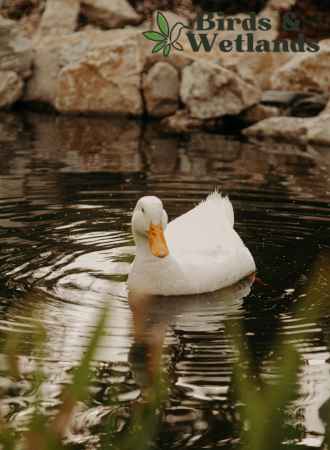
Feeding ducks at the pond can help foster a connection with nature. It can be a peaceful and relaxing activity that allows you to appreciate the beauty of the natural world.
It’s a Great Way to Bond with Feathered Friends
Feeding ducks at the pond can be a great way to bond with feathered friends. Ducks are social animals and can be quite friendly when approached with food. It can be a fun activity to share with family and friends.
While feeding ducks at the pond can be a fun and rewarding experience, it’s important to do so responsibly. Avoid feeding ducks bread, as it is not a healthy food for them. Instead, opt for foods that are natural to their diet, such as aquatic plants, small fish, and insects. It’s also important to avoid overfeeding ducks, as this can lead to health problems for the ducks and can harm the ecosystem of the pond.
Overall, feeding ducks at the pond can be a fun and educational activity that can help foster a connection with nature and help wild ducks thrive.
What to Feed Ducks at the Pond
Ducks are delightful creatures to watch and feed at the pond. However, it’s important to provide them with nutritious food that will keep them healthy and happy. Here are some healthy and unhealthy options to consider when feeding ducks at the pond.
Healthy Options
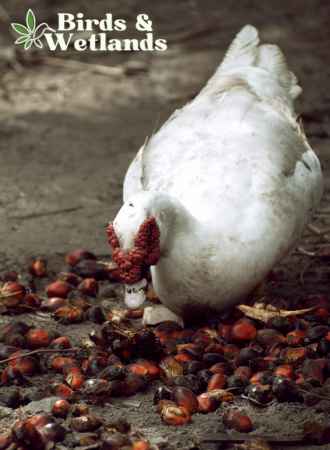
- Natural Food Sources: Ducks can easily find their own food in the wild, so it’s best to feed them natural food sources like aquatic vegetation, small fish, and fishing bait. These sources are rich in nutrients and help maintain a healthy diet for ducks.
- Duck Feed Pellets: Duck feed pellets are specially formulated to provide ducks with the necessary nutrients they need to stay healthy. They are readily available at most pet stores and are a great option for feeding ducks at the pond.
- Frozen Peas: Frozen peas are a great source of protein and fiber for ducks. They are easy to store, and ducks love them. Just make sure to thaw them before feeding them to the ducks.
- Salad Mixes and Vegetable Trimmings: Ducks love salad mixes vegetable trimmings and other greens like chopped lettuce, carrots, and celery. These foods provide a variety of nutrients and are a great way to add some variety to their diet.
Unhealthy Options
- Feed Ducks Bread: Feeding ducks bread is a common practice, but it’s not healthy for them. Bread has little nutritional value and can cause digestive problems for ducks. Instead, opt for healthier options like duck feed pellets or natural food sources.
- Junk Food: Feeding ducks junk food like chips, candy, or cookies is not only unhealthy but can also be dangerous for them. These foods can cause health problems and may even be toxic to ducks.
- Stale Bread or Unsuitable or Moldy Scraps: Stale bread or unsuitable or moldy scraps can cause health problems for ducks. It’s important to provide them with fresh, healthy food that will keep them healthy and happy.
- Citrus Fruits: Citrus fruits like oranges and lemons can upset a duck’s stomach and cause digestive problems. It’s best to avoid feeding ducks citrus fruits altogether.
Best Waterfowl Feed
Delightful Feeding Experience
Transform your backyard into a scenic waterfowl habitat and enjoy an interactive feeding experience with Natural Waterscapes Waterfowl Floating Food.

Pros
- Nutritious Food: Natural Waterscapes Waterfowl Floating Food is specifically designed to provide essential nutrients to waterfowl, including swans, geese, and ducks, helping them maintain a healthy diet.
- Convenient: The food comes in resealable packaging, making it easy to store and use as needed. It is also easy to handle and transport.
- Floating Formula: The floating formula of the food allows it to remain on the surface of the water, making it easier for waterfowl to eat and minimizing the risk of water contamination.
- Attracts Waterfowl: The food is formulated to attract various waterfowl species, including swans, geese, and ducks, to your pond, lake, or other water body, providing an opportunity to observe and enjoy these beautiful creatures.
- Environmentally Friendly: Natural Waterscapes Waterfowl Floating Food is made with environmentally friendly ingredients and does not contain any harmful preservatives, making it safe for both waterfowl and the environment.
Cons
- Shelf Life: The food’s shelf life may be limited compared to other types of waterfowl food due to its natural ingredients and lack of preservatives. This means you may need to use it up quickly after opening the package to prevent it from going bad.
The Dangers of Overfeeding Ducks at the Pond
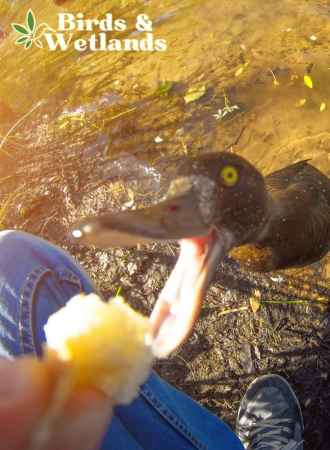
Feeding ducks at the pond can be a fun and enjoyable activity. However, it is important to be mindful of the amount and type of food being given to them. Overfeeding ducks can lead to various negative consequences that can harm both the ducks and the environment.
One of the main dangers of overfeeding ducks at the pond is that too much food can cause health problems. Ducks that consume too much food can become overweight and suffer from health issues such as liver disease and heart problems. Uneaten food can attract unwanted pests to the pond, such as rats and other rodents, which can further harm the ecosystem.
Another issue with overfeeding ducks is that it can create excess waste in the pond. This can lead to an increase in harmful bacteria and algae growth, which can negatively impact the water quality and harm other wildlife in the area. Leftover food can accumulate and create a breeding ground for harmful bacteria and parasites, which can spread diseases to the ducks and other wild birds and other animals.
Overfeeding ducks can also harm particularly young birds growth and development. Feeding them too much bread and other human food can cause a condition called “angel wing,” which is a deformity in the wings that can make the birds flightless. This condition occurs when the ducks’ diet is high in proteins and low in essential vitamins and minerals.
It is important to note that ducks do not require human handouts to survive. They are capable of finding their own food in their natural habitat. Therefore, it is best to avoid feeding ducks at the pond altogether. If you do choose to feed them, make sure to provide bite-sized pieces of healthy food such as peas, corn, and chopped lettuce. And always remember to clean up any uneaten leftovers to avoid excess waste in the pond.
How to Feed Ducks at the Pond Responsibly
Feeding ducks at the pond can be a fun and enjoyable activity, but it’s important to do so responsibly to avoid harming the ducks and their environment. Here are some tips to help feed ducks at the pond responsibly.
Prohibiting Feeding Ducks at the Pond
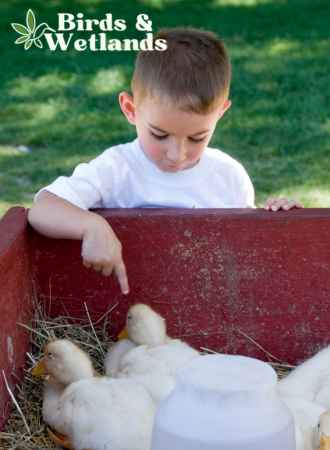
Some parks and ponds have rules that prohibit feeding ducks and other waterfowl. This is often because feeding ducks can lead to overpopulation, which can cause problems for the ducks and other wildlife that live in and around the pond. Feeding the wild duckings, ducks and wild animals can lead to the spread of disease and can encourage ducks to become dependent on humans for food, which can make it difficult for them to survive in the wild.
If there are signs or rules prohibiting feeding ducks at the pond, it’s important to follow these rules. If there are no rules prohibiting feeding ducks, it’s still important to feed them responsibly.
Alternatives to Feeding Ducks at the Pond
Instead of feeding ducks at the pond, there are other ways to enjoy their company and help them thrive. Here are some alternatives to feeding ducks at the pond:
- Observe ducks from a distance: Watching ducks from a distance can be just as enjoyable as feeding them, and it won’t harm the ducks or their environment.
- Bring a camera: Taking photos of ducks and other wildlife can be a great way to enjoy their company and capture memories without harming them.
- Pick up litter: Picking up litter around the pond can help keep the environment clean and safe for ducks and other wildlife.
Other Tips for Feeding Ducks at the Pond Responsibly
If you do decide to feed the ducks at the local pond, here are some tips to help you do so responsibly:
- Feed ducks natural foods: Ducks can eat a variety of natural foods, including grass, small fish, and insects. Avoid feeding ducks bread, crackers, or other processed foods, as these can be harmful to their health.
- Use small amounts of food: Feeding ducks small amounts of food can help prevent overpopulation and can ensure that all ducks have access to food.
- Avoid using plastic clips or twist ties: These can be harmful to ducks if they accidentally ingest them.
- Be mindful of larger waterfowl: Larger waterfowl, such as geese and swans, can be more aggressive than ducks and may try to take food away from them. It’s important to be mindful of these larger birds and to avoid feeding them directly.
- Stop feeding if ducks become aggressive: If ducks become aggressive or start to swarm, it’s important to stop feeding them and to leave the area.
- Trash properly: Make sure to dispose of any trash or food scraps properly to avoid littering and to keep the environment clean and safe for ducks and other wildlife.
- Be mindful of urban ponds: Urban ponds can be more polluted than natural ponds, so it’s important to be mindful of the types of food ducks eat and to avoid feeding them in areas with high levels of pollution.
By following these tips, you can help ensure that feeding ducks at the pond is a fun and enjoyable activity that doesn’t harm the ducks or their environment.
FAQS on What to Feed Ducks at Ponds
What is ducks favorite food?
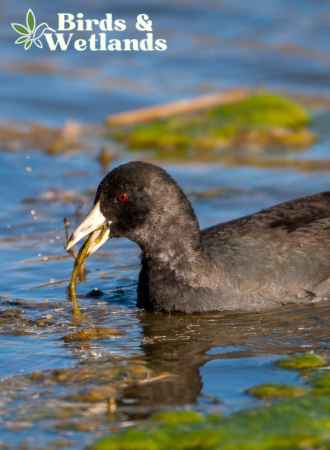
Ducks have varied diets, and their favorite food may vary depending on the species and their natural habitat. In general, ducks enjoy eating aquatic plants, seeds, small fish, insects, and other small aquatic creatures. Some ducks, like dabbling ducks, primarily feed on plant material, while diving ducks may have a diet that includes more small fish and underwater vegetation.
Should I feed wild ducks on my pond?
Feeding wild ducks is generally discouraged, as it can lead to a number of problems. Providing food for wild ducks may cause them to become dependent on humans, disrupt their natural feeding habits, and alter their migration patterns. Feeding ducks can lead to overcrowding, increased aggression, and the spread of diseases. It is best to let wild ducks find their own natural sources of food in their environment.
Is uncooked rice good for ducks?
Uncooked rice is not a suitable food for ducks. There is a common myth that uncooked rice can harm birds by expanding in their stomachs, but the real issue is that rice lacks the essential nutrients that ducks need to thrive. Feeding ducks uncooked rice can lead to malnutrition and other health problems.
Instead of rice, if you feel compelled to feed ducks, provide them with healthier alternatives like cut-up grapes, peas, or duck feed pellets specifically designed for their nutritional needs. However, it is still best to let ducks find their own natural sources of food in the environment.
Best Duck Feed Pellets
Are you a duck owner looking for the perfect feed to keep your feathered friends happy and healthy? Look no further than Purina Duck Feed Pellets! With their nutritionally balanced formula and high-quality ingredients, these pellets are the ultimate solution for providing your ducks with the nutrition they need to thrive.
Pros
- Complete Nutrition: Purina Duck Feed Pellets are nutritionally balanced to provide all the essential vitamins and minerals that ducks need to stay healthy and strong.
- Easy to Digest: The pellets are specially formulated to be easy to digest, which makes them ideal for ducks of all ages.
- Promotes Growth and Development: With its balanced nutrition formula, Purina Duck Feed Pellets are designed to support healthy growth and development in ducks.
- Suitable for All Breeds: Whether you have domestic ducks or wild ducks, Purina Duck Feed Pellets are suitable for all breeds of ducks.
- Trusted Quality: Purina has been producing high-quality animal feed for over 100 years, so you can trust that your ducks are getting the best possible nutrition with Purina Duck Feed Pellets.
Cons
- Cost: Compared to other types of duck feed on the market, Purina Duck Feed Pellets can be slightly more expensive. However, many customers feel that the high-quality ingredients and balanced nutrition formula are worth the extra investment.
- Pellet Size: Some customers have noted that the pellet size of Purina Duck Feed Pellets can be quite large, which may not be suitable for smaller or younger ducks. However, many customers have reported that the pellets can easily be broken up or soaked in water to make them easier to eat.

